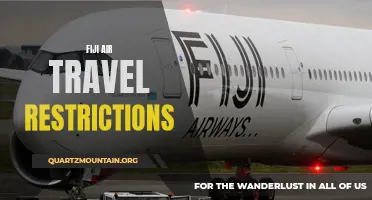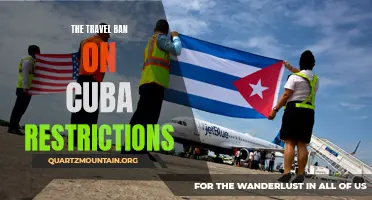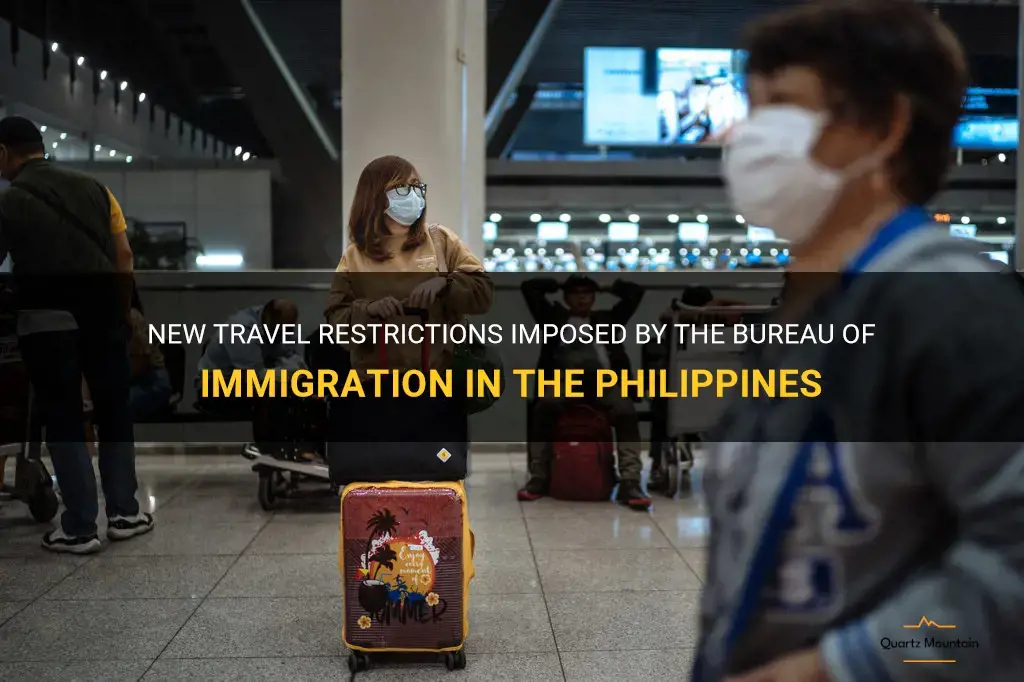
As the world continues to grapple with the ongoing COVID-19 pandemic, governments around the world have implemented various travel restrictions to curb the spread of the virus. The Bureau of Immigration in the Philippines has also taken several measures to safeguard the country and its citizens. From mandatory quarantine periods to visa restrictions for certain nationalities, the Bureau of Immigration is playing a crucial role in ensuring the safety of the Filipino population. In this article, we will delve into the travel restrictions imposed by the Bureau of Immigration in the Philippines and how they are affecting international travel to and from the country.
What You'll Learn
- What are the current travel restrictions imposed by the Bureau of Immigration in the Philippines?
- Are there any exemptions to the travel restrictions enforced by the Bureau of Immigration?
- How are the travel restrictions enforced by the Bureau of Immigration affecting tourists and visitors to the Philippines?
- What documentation is required to enter the Philippines during the travel restrictions enforced by the Bureau of Immigration?
- Are there any steps being taken by the Bureau of Immigration to ease the travel restrictions in the near future?

What are the current travel restrictions imposed by the Bureau of Immigration in the Philippines?
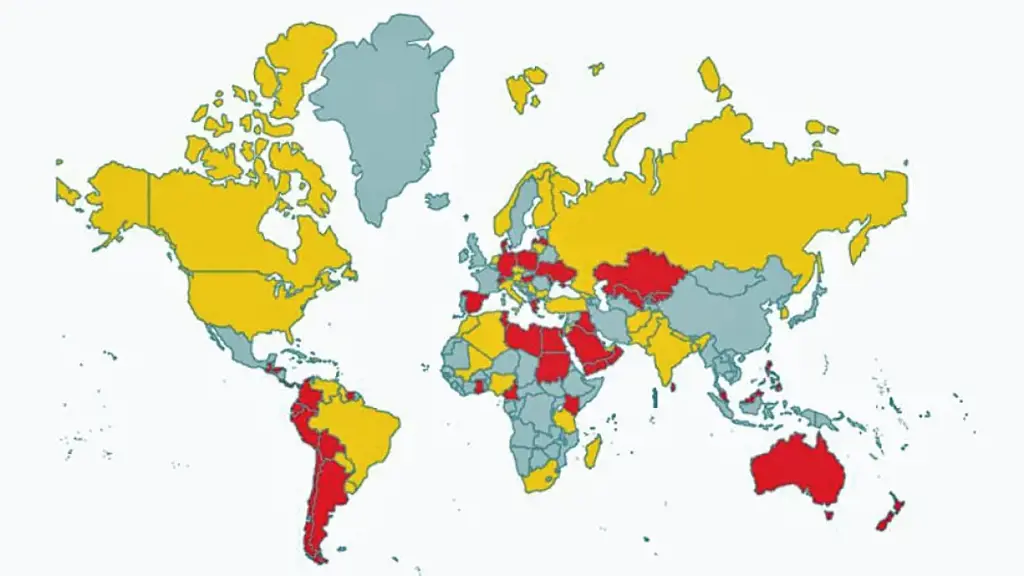
As the COVID-19 pandemic continues to affect countries around the world, the Bureau of Immigration in the Philippines has implemented various travel restrictions to help prevent the spread of the virus. These restrictions aim to safeguard the health and well-being of both Filipino citizens and foreign travelers entering the country. Here are the current travel restrictions imposed by the Bureau of Immigration in the Philippines:
- Temporary suspension of visa issuance and visa-free entry: The Bureau of Immigration has temporarily suspended the issuance of visas to foreign nationals, including visa-free entry for citizens of certain countries. This measure is implemented to control the entry of foreign passengers and reduce the risk of importing COVID-19 cases.
- Suspension of inbound foreign travelers: In an effort to prevent the entry of individuals infected with COVID-19, the Philippine government has temporarily suspended the entry of foreign nationals, except for certain categories such as foreign spouses and children of Filipino citizens, permanent residents, and diplomats.
- Mandatory quarantine and testing requirements: All arriving passengers, including Filipino citizens, are required to undergo quarantine and testing upon arrival in the Philippines. Passengers are required to secure a negative RT-PCR test result taken within 72 hours before their departure to the Philippines. They are also required to undergo a mandatory 14-day quarantine at a government-accredited facility.
- Travel restrictions in specific areas: The Bureau of Immigration may also implement travel restrictions in specific areas within the Philippines, depending on the local COVID-19 situation. These restrictions may include lockdowns, travel bans, and the suspension of domestic flights to and from certain areas.
- Travel history requirements: Foreign travelers entering the Philippines may also be required to provide their travel history for the past 14 days. This information is used to assess the traveler's risk of COVID-19 exposure and determine if additional quarantine measures are necessary.
It's important to note that travel restrictions and requirements are subject to change as the situation evolves. The Bureau of Immigration regularly updates its guidelines to adapt to new developments in the fight against COVID-19. Travelers planning to enter or leave the Philippines should closely monitor these updates and consult the Bureau of Immigration or their respective embassies or consulates for the most up-to-date information.
Navigating the Challenges of International Travel Restrictions During Pregnancy
You may want to see also

Are there any exemptions to the travel restrictions enforced by the Bureau of Immigration?
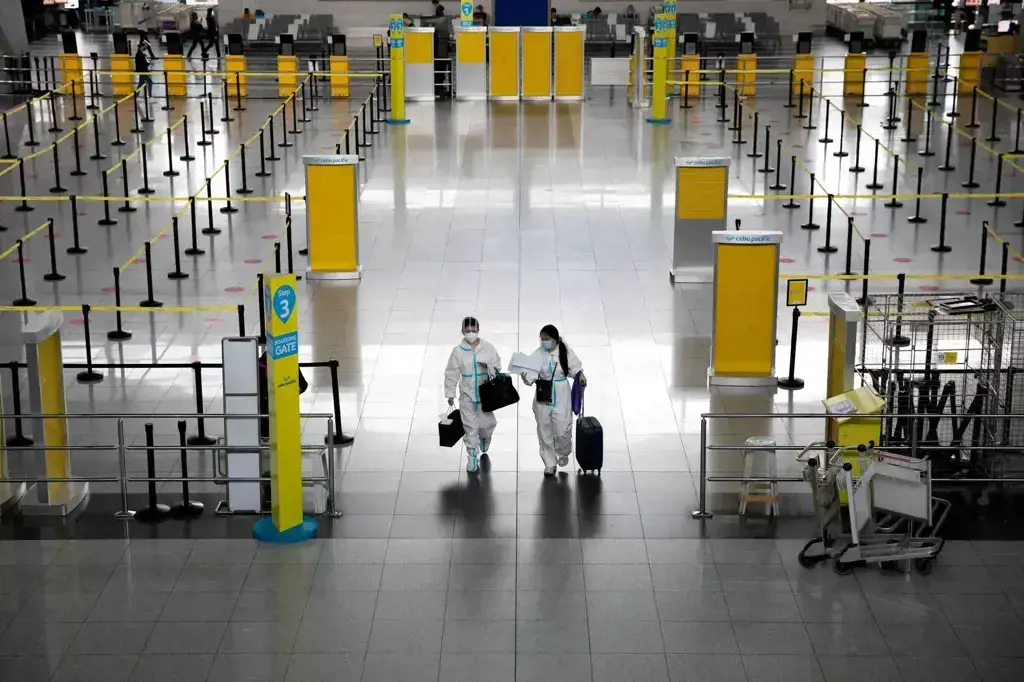
The Bureau of Immigration (BI) is responsible for implementing travel restrictions and immigration regulations in the Philippines. These travel restrictions are put in place to ensure the safety and security of the country and its citizens. However, there are certain exemptions to these travel restrictions that allow individuals to enter or exit the country despite the imposed limitations.
One of the main exemptions to the travel restrictions is for Filipinos who are overseas Filipino workers (OFWs). OFWs are individuals who are employed abroad and have valid work contracts. They are allowed to travel to and from the Philippines, provided that they present the necessary documents such as their work contract and a valid passport.
Another exemption is granted to foreign spouses and children of Filipino citizens. These individuals are allowed to enter the Philippines, but they must present the necessary documents to prove their relationship to a Filipino citizen, such as a marriage certificate or birth certificate.
Additionally, foreign diplomats and officials accredited to the Philippines are exempt from the travel restrictions. These individuals are allowed to enter and exit the country, but they must follow the necessary protocols and obtain the required documentation.
Medical and emergency cases are also exempt from the travel restrictions. Individuals who need to travel due to medical emergencies or other urgent situations are allowed to enter or exit the country, but they must provide the necessary evidence to support their case.
Lastly, individuals who have been granted special visas by the Philippine government are also exempt from the travel restrictions. These may include investors, retirees, and other individuals who have been given special permission to enter or exit the country.
It is important to note that even though these exemptions exist, individuals must still follow the necessary health protocols and guidelines imposed by the Philippine government. This may include undergoing COVID-19 testing, mandatory quarantine upon arrival, or other requirements.
In conclusion, while there are travel restrictions put in place by the Bureau of Immigration, there are exemptions for certain individuals. Overseas Filipino workers, foreign spouses and children of Filipino citizens, foreign diplomats, individuals with medical or emergency cases, and those granted special visas are among the exempted individuals. However, it is crucial for everyone to comply with the health protocols to protect the safety and well-being of the country and its citizens.
Stay Up-to-Date: Are There Any Travel Restrictions to St. Lucia?
You may want to see also

How are the travel restrictions enforced by the Bureau of Immigration affecting tourists and visitors to the Philippines?
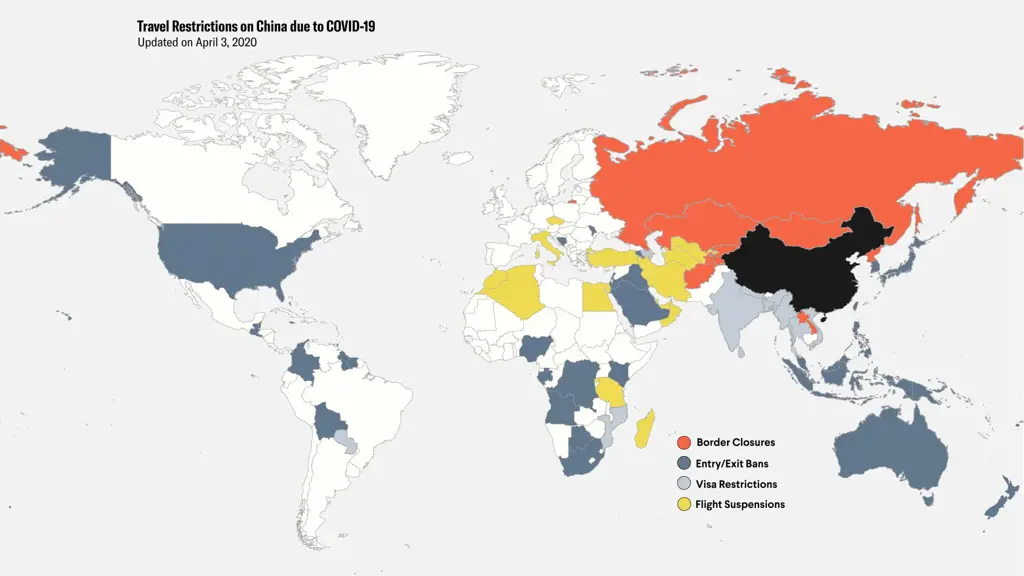
The travel restrictions enforced by the Bureau of Immigration in the Philippines have had a significant impact on tourists and visitors to the country. These restrictions were put in place in response to the ongoing COVID-19 pandemic, with the aim of controlling the spread of the virus and protecting the health and safety of both the local population and travelers.
One of the main restrictions that has been implemented is the requirement for all foreign travelers to obtain a valid visa before entering the Philippines. Previously, some nationals were able to enter the country without a visa or with a visa obtained upon arrival. However, since the implementation of the travel restrictions, this is no longer possible. Travelers must now apply for and obtain the appropriate visa from a Philippine embassy or consulate in their home country before their trip.
Additionally, the Bureau of Immigration has placed restrictions on the entry of certain foreign nationals, particularly those coming from countries with high numbers of COVID-19 cases. Travelers from these countries may be denied entry or subject to additional quarantine measures upon arrival. The list of restricted countries is regularly updated based on the current COVID-19 situation.
For tourists and visitors who are able to enter the Philippines, they may be subject to mandatory quarantine upon arrival. This can range from a few days to several weeks, depending on the traveler's vaccination status and country of origin. During this quarantine period, tourists and visitors are required to stay in designated quarantine facilities, often at their own expense.
The travel restrictions have also affected the overall tourism industry in the Philippines. With limited international travel and strict entry requirements, the number of tourists visiting the country has significantly decreased. This has had a negative impact on businesses and individuals who rely on tourism for their livelihoods, such as hotels, tour operators, and local vendors.
To mitigate the impact of these travel restrictions, the Philippine government has been implementing various measures. This includes supporting local businesses in the tourism sector through financial assistance, offering travel incentives to domestic travelers, and launching promotional campaigns to encourage travel within the country.
Overall, while the travel restrictions enforced by the Bureau of Immigration are necessary for public health reasons, they have undoubtedly had a significant impact on tourists and visitors to the Philippines. The restrictions have made it more challenging for foreign travelers to enter the country and have caused a decline in tourism. However, with ongoing vaccination efforts and the implementation of safety protocols, there is hope that these restrictions will be gradually eased, allowing for a return to normalcy in the travel industry.
Exploring Air Travel Restrictions in the State of Maryland
You may want to see also

What documentation is required to enter the Philippines during the travel restrictions enforced by the Bureau of Immigration?
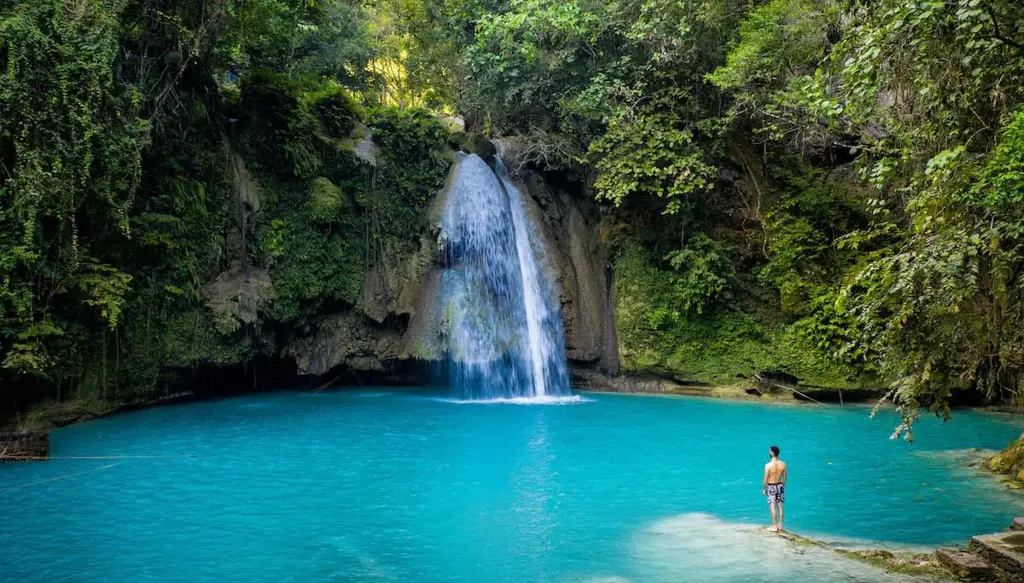
During the ongoing travel restrictions enforced by the Bureau of Immigration in the Philippines, there are certain documentation requirements for travelers entering the country. These requirements aim to ensure the safety and well-being of both Filipino citizens and foreign visitors. Here is a list of the documentation required to enter the Philippines during these travel restrictions:
- Negative RT-PCR Test Result: All travelers, regardless of nationality, must present a negative RT-PCR test result taken within 72 hours before their departure to the Philippines. The test must be conducted by a licensed testing center recognized by the Philippine government. This requirement is mandatory for all travelers including Filipinos returning to the country.
- Health Declaration and Locator Form: Travelers are required to fill out and submit a Health Declaration and a Locator Form online before their travel. These forms collect important information about the traveler's health, contact details, and travel history. The forms can be accessed through the official websites of the Bureau of Immigration and other relevant government agencies.
- Travel and Health Insurance: It is strongly recommended for travelers to have travel and health insurance coverage while in the Philippines, especially during the pandemic. This insurance can provide assistance in case of medical emergencies or other unforeseen situations.
- Quarantine Accommodation: Travelers must have confirmed bookings for an accredited quarantine facility or isolation hotel in the Philippines. The list of accredited quarantine facilities can be found on the Bureau of Quarantine's website. It is important to note that travelers are responsible for all expenses related to their quarantine accommodation and COVID-19 testing during their stay.
- Return/Onward Flight Ticket: It is advisable to have a return or onward flight ticket to prove that you are planning to leave the country within the allowed duration of stay. This is especially important for foreign tourists to show their intention of not overstaying in the Philippines.
- Valid Passport: All travelers must have a valid passport with a remaining validity of at least six months from the date of their intended departure from the Philippines.
- Visa Requirements: Depending on the purpose and duration of your intended stay, you may need to secure the appropriate visa before traveling to the Philippines. Check the official website of the Bureau of Immigration or consult the nearest Philippine Embassy or Consulate to determine the visa requirements for your specific situation.
It is essential to stay updated with the latest travel advisories and guidelines issued by the Philippine government and relevant authorities. Travel restrictions and requirements may change without prior notice, so it is advisable to regularly check the official websites for any updates before planning your travel to the Philippines. By adhering to these documentation requirements, travelers can ensure a smooth entry into the country during the ongoing travel restrictions.
Bali Travel Restrictions from Dubai: What You Need to Know
You may want to see also

Are there any steps being taken by the Bureau of Immigration to ease the travel restrictions in the near future?
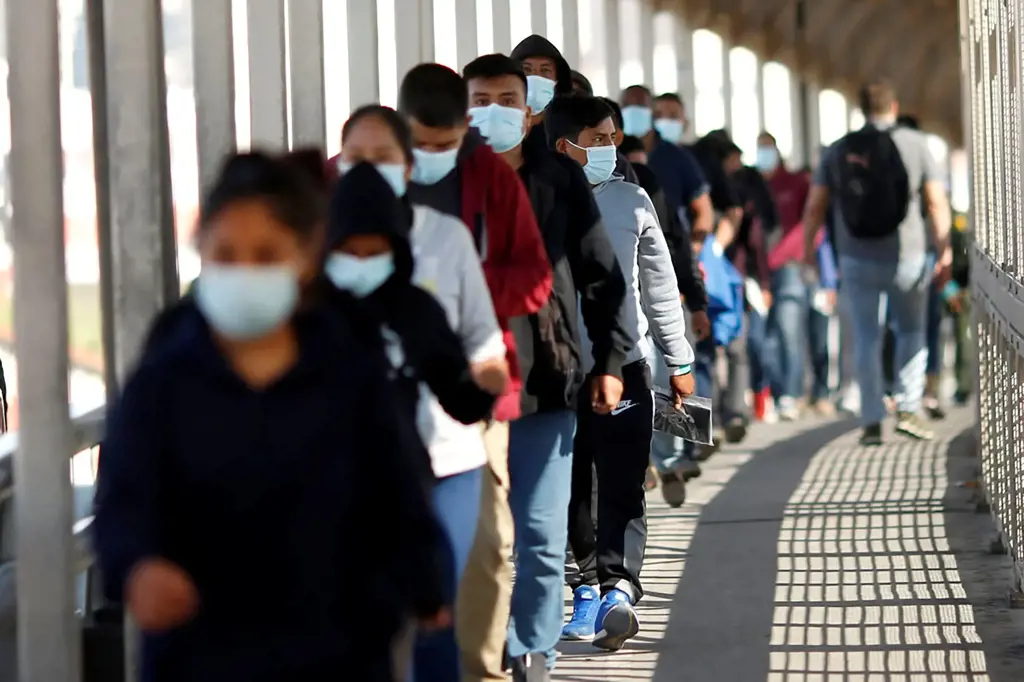
As the global COVID-19 pandemic continues to evolve, the Bureau of Immigration recognizes the need to balance the country's public health concerns with the economic impact of strict travel restrictions. While there are currently no explicit plans to ease travel restrictions in the near future, the Bureau of Immigration is constantly assessing the situation and collaborating with local and international health authorities to ensure the safe resumption of travel.
The Bureau of Immigration understands the importance of tourism and the aviation industry to the Philippine economy. It recognizes the need for the gradual reopening of international travel to revive the tourism sector and bring much-needed economic activity to the country. However, any steps taken in this direction must prioritize public health and safety.
To that end, the Bureau of Immigration is closely monitoring the COVID-19 situation both domestically and internationally. It is keeping a vigilant eye on global vaccine distribution efforts, vaccination rates, and the prevalence of new variants of the virus. These factors will greatly influence any decisions regarding the relaxation of travel restrictions.
The Bureau of Immigration is also actively participating in discussions with other government agencies, as well as industry stakeholders such as airlines and tourism boards, to develop comprehensive protocols for the safe resumption of travel. These protocols will likely include stringent testing and quarantine measures to minimize the risk of importing and spreading the virus.
Furthermore, the Bureau of Immigration understands the importance of effective border control measures to prevent the spread of COVID-19. As such, it will continue to implement strict border control measures, including the monitoring of entry and exit points, enforcing visa regulations, and coordinating with immigration authorities from other countries to ensure the smooth and safe movement of travelers.
While the precise timeline for easing travel restrictions is uncertain, the Bureau of Immigration is committed to ensuring a balanced approach that prioritizes public health and economic recovery. It understands the need to provide clear guidelines and reliable information to both Filipino citizens and foreign travelers, and will continue to communicate updates and changes as they arise.
In conclusion, the Bureau of Immigration is actively working towards easing travel restrictions in a safe and responsible manner. However, the exact steps and timeline will depend on various factors, including the global COVID-19 situation and the effectiveness of containment measures. The Bureau of Immigration remains dedicated to protecting public health while also supporting the country's economic recovery.
Exploring Bermuda: An Update on Travel Restrictions and Requirements for Visitors
You may want to see also
Frequently asked questions
Foreign nationals are currently allowed to enter the Philippines, but there are specific travel restrictions and requirements in place. Travelers must have a valid and existing visa, as well as an active and valid visa waiver or visa upon arrival. They must also present pre-booked accommodations for at least seven nights in an accredited quarantine facility, and must undergo a swab test upon arrival.
Yes, certain categories of travelers are exempted from the mandatory quarantine upon arrival in the Philippines. These include accredited foreign government and international organization officials and their dependents, foreign airline crew members, and foreign seafarers with a 9(c) visa. However, they still need to comply with other health and safety protocols, such as presenting a negative COVID-19 test result taken within 72 hours prior to departure, and undergoing a health assessment upon arrival.
Foreign travelers departing the Philippines are required to secure an exit clearance certificate from the Bureau of Immigration. This is to ensure that they have complied with all the necessary immigration requirements and have no pending obligations or cases. The certificate can be obtained online through the Bureau of Immigration's website or at the airport prior to departure. It is important for foreign travelers to check the specific requirement beforehand to avoid any issues or delays in their departure.


